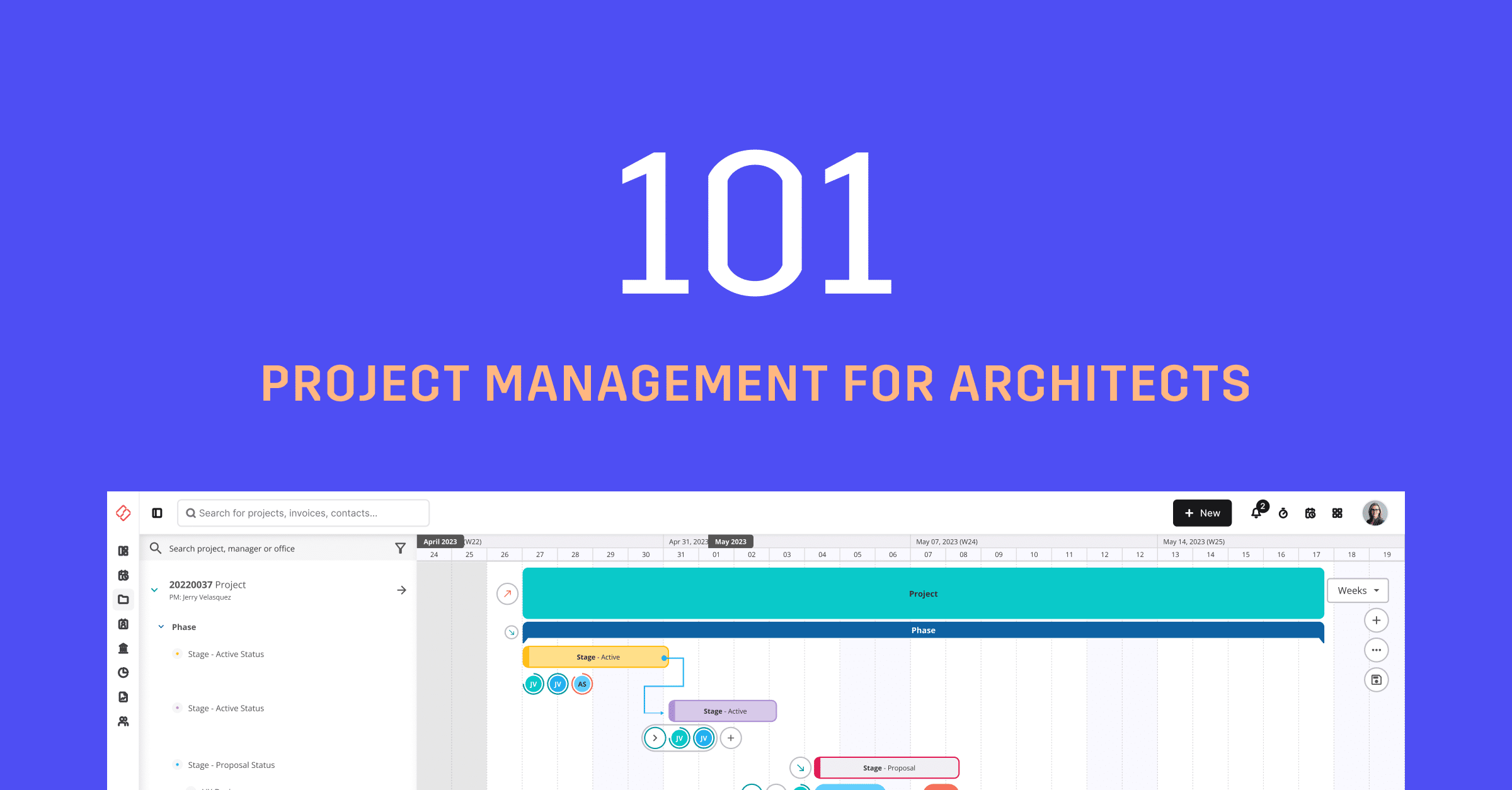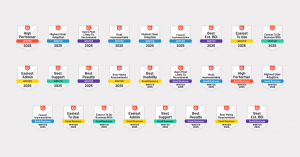Behind every magnificent building stands a team of professionals who navigated complex challenges, tight deadlines, and budget constraints. Exceptional project management forms the cornerstone of successful architectural delivery, complementing and enhancing good design.
When architectural firms master project management, they transform from creative studios into high-performing businesses that deliver consistent and remarkable results.
The most successful firms know that strong project management supports great design. With the right resource allocation, respected timelines, and clear client expectations, better outcomes follow.
What is Architecture Project Management?
Architecture project management is the comprehensive oversight and coordination of architectural projects from concept through completion. It encompasses the systems, methodologies, and leadership needed to guide a design from initial sketches to a finished structure.
Effective architecture project management balances the creative and technical aspects of design with business considerations, ensuring projects remain profitable while achieving design excellence.
At its core, project management for architects serves as the bridge between creative vision and practical reality. It creates structured processes that transform abstract concepts into concrete timelines, budgetary frameworks, and resource allocation plans. Project managers in architecture firms coordinate multidisciplinary teams, manage client relationships, navigate regulatory requirements, and address inevitable challenges while maintaining the integrity of the design vision.
How Does Project Management in Architecture Differ From Other Industries?
Creative and Technical Integration
Unlike many industries where technical specifications are clearly defined from the outset, architectural projects continually balance aesthetic aspirations with technical feasibility. Project managers must facilitate collaboration between designers, engineers, and contractors while preserving the creative vision that distinguishes the project.
Regulatory Complexity
Architectural projects navigate a maze of building codes, zoning laws, environmental regulations, and permitting processes that vary by location. Project managers must anticipate regulatory hurdles and integrate compliance requirements into project timelines without compromising design objectives.
Stakeholder Diversity
Architecture projects involve an unusually diverse range of stakeholders, like clients, design teams, consultants, contractors, subcontractors, regulatory authorities, and end-users. Project managers must skillfully manage these relationships, facilitating clear communication and navigating competing priorities and perspectives.
Iterative Design Process
Unlike several other industries, like manufacturing, architectural design often evolves throughout the project lifecycle. Project managers must create systems that accommodate design refinements while maintaining schedule integrity and budget discipline.
Best Practices for Architecture Project Management
Establish Clear Communication Frameworks
Communication breakdowns are among the most common causes of project delays and budget overruns. Successful architecture project managers implement structured communication protocols that specify how information flows between team members, clients, and external stakeholders.
This includes documentation standards, review processes, meeting cadences, and decision-making hierarchies that ensure everyone remains aligned throughout the project lifecycle.
Implement Phase-Based Planning
Breaking projects into distinct architectural design phases: conceptual design, schematic design, design development, construction documentation, bidding, and construction administration creates natural checkpoints for evaluation and course correction.
Each phase should have clearly defined deliverables, timelines, and approval processes, allowing teams to focus on immediate priorities while maintaining awareness of overall project trajectories.
Develop Comprehensive Resource Management
Architectural projects require precise allocation of design talent, technical expertise, and administrative support. Effective project managers create systems for forecasting resource needs, tracking utilization rates, and redistributing team members as project demands evolve. It ensures design quality while preventing bottlenecks that can derail timelines.
Create Risk Management Protocols
From unexpected site conditions to design revisions and contractor disputes, architectural projects face numerous potential disruptions. Proactive project managers identify and assess risks during planning stages, develop mitigation strategies, and create contingency plans that protect both design integrity and business interests when challenges arise.
Finding the Best Architecture Project Management Software
Prioritize Industry-Specific Functionality
The unique requirements of architectural practice demand software specifically designed for the industry. Look for solutions that integrate project scheduling with resource allocation, budget tracking, and document management in ways that align with architectural workflows rather than generic project management approaches.
Ensure Design Software Integration
Your project management solution should seamlessly connect with your design software ecosystem, allowing for smooth transitions between design activities and project management functions. This integration eliminates duplicate data entry, reduces coordination errors, and provides real-time visibility into how design decisions impact project timelines and budgets.
Consider Pre-Built Project Templates
Effective architecture project management software should offer industry-specific templates that align with standard architectural workflows. These pre-built templates establish consistency across projects by standardizing task sequences, milestone definitions, and resource allocation patterns.
By structuring each new project with tested templates, firms can eliminate redundant planning work, ensure critical steps aren’t overlooked, and establish repeatable processes that increase efficiency. Look for solutions that allow template customization while maintaining core structural elements, enabling your firm to incorporate lessons learned and continually refine your project delivery methodology.
Look for Earned Value Management (EVM) Insights
Superior project management solutions provide earned value management capabilities that allow firms to measure project performance objectively. EVM integrates scope, schedule, and cost metrics to evaluate progress against plans, enabling project managers to identify variances early and make data-driven decisions.
Look for systems that automatically calculate key indicators like performance, cost, and forecasting metrics, giving you real-time visibility into project health and allowing you to forecast final costs and completion dates with greater accuracy.
Elevate Your Architecture Project Management with Total Synergy
Great architecture begins with a vision and succeeds with exceptional project management. For over twenty-five years, Total Synergy has pioneered specialized solutions exclusively for A&E practices.
Our platform addresses the unique challenges A&E firms face daily, balancing creative excellence with business performance. Total Synergy’s project management solution works in harmony with design professionals’ natural workflows while connecting design activities directly to financial outcomes. Real-time insights prevent budget overruns and resource bottlenecks before they occur.
By simplifying complex project management processes, we help firms focus more energy on design innovation while simultaneously improving profitability. Experience the clearest path to project profitability for your practice by booking a demo today.



